Iranian News Outlet Suspended Over Critique Of Foreign Policy
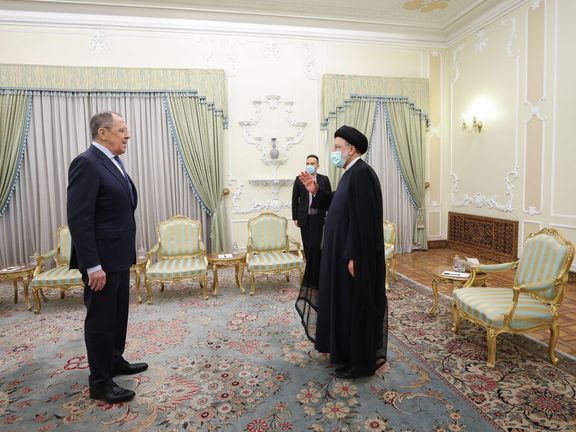
Iranian authorities have suspended the operations of the Entekhab news website, citing violations of press laws and decisions made by the Supreme National Security Council.

Iranian authorities have suspended the operations of the Entekhab news website, citing violations of press laws and decisions made by the Supreme National Security Council.
While the suspension has been reported by news outlets aligned with the Iranian regime, the precise reasons for the suspension have not been officially communicated to the website's owner or its management.
The Tasnim news agency, which is affiliated with the IRGC, reported on Monday the suspension of the Entekhab news website in accordance with "Article 12 of the Press Law." Tasnim also reported that the case had been referred to the judiciary for further investigation.
The suspension of Entekhab follows the examination of a video and report titled "Iran's Brand Auction: Why Has Iran's Foreign Policy Weakened So Much?" by the media supervisory body during its session on Monday. According to Tasnim, the content of the video was found to be "beyond legal boundaries, contrary to national interests, and against the fundamental policies of the Islamic Republic of Iran in foreign policy."
The video, which was published on August 22 on the Entekhab website, contained critical commentary on Iran's current foreign policy under the leadership of President Ebrahim Raisi. It asserted that the Raisi administration's "purely Eastern-oriented policy and Russia-centric approach" had dealt a significant blow to Iran's centuries-old foreign policy traditions.
It is worth noting that the Entekhab website had gained prominence in recent years, particularly after the closure of the Entekhab newspaper. The website was known for its alignment with a broad spectrum of political figures, including Akbar Hashemi Rafsanjani and the previous administration under President Hassan Rouhani.
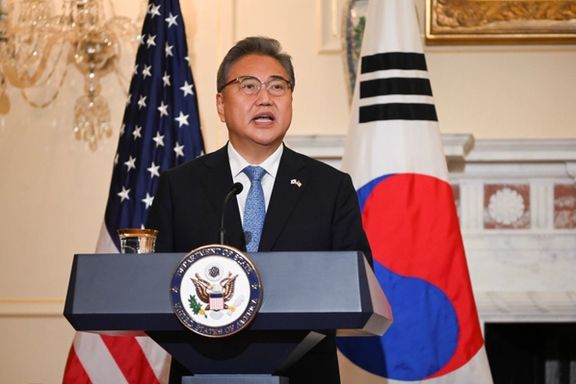
South Korea has announced it is actively coordinating with relevant nations in their ongoing endeavors to unfreeze Iranian funds held within its banking institutions.
In a statement released on Tuesday, South Korea's Foreign Minister Park Jin confirmed that he spoke to Hossein Amir-Abdollahian, his Iranian counterpart, and that he is working to resolve this matter.
This comes following a recent diplomatic agreement between Tehran and Washington, in which Iran agreed to release five imprisoned American citizens in exchange for the release of $6billion frozen Iranian assets in South Korea.
According to reports from South Korean media, these funds, earned from oil sales before the US reimposed sanctions on Iran in 2018, have been transferred to the Swiss Central Bank, after which they will be converted into euros and then transferred to an account in Qatar that Iran can access.
American news source CNN, reported in August that the transfer of funds from South Korea to Qatar is likely to take 30 to 45 days.
The official news agency of the Islamic Republic has also confirmed the continuous efforts to transfer Iran's frozen assets from South Korean banks. According to IRNA, Amir-Abdollahian expressed optimism, stating that this development could “mark the commencement of a new phase in bilateral relations, and he welcomes any initiatives that contribute to enhancing ties between the two nations.”
Presently, the five American citizens are under house arrest in Iran. However, specific details regarding the Iranian prisoners to be exchanged with the five individuals as part of the recent agreement have not been publicly disclosed.
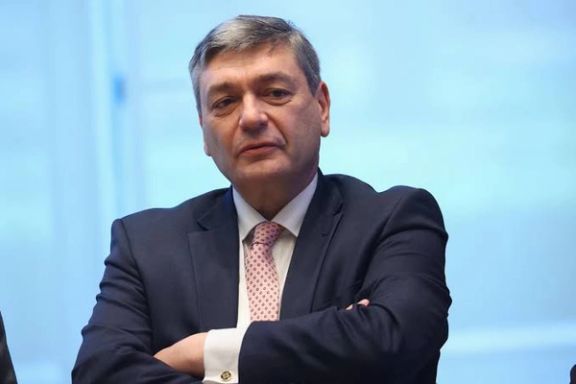
Russia and Iran are actively negotiating a new treaty to strengthen and expand their bilateral cooperation, according to Russia's Deputy Foreign Minister Andrey Rudenko.
Deputy Minister Rudenko made this announcement during a session hosted by the Valdai Discussion Club, highlighting the increasing positive momentum in Russia-Iran relations in recent years.
"We are working on a new major treaty with Iran, which will encompass, among other things, our key areas [of cooperation]," stated Deputy Foreign Minister Rudenko.
The development of this new treaty underscores the commitment of both nations to strengthening their partnership and fostering closer ties. Over the past few years, Russia-Iran relations have steadily progressed, promising further advancements in their collaboration.
During the Iranian President's visit to Moscow in January 2022, he presented a draft of a 20-year cooperation agreement, which would update the previous 2001 version. However, Moscow has yet to sign this proposed agreement.
While Iranian officials had previously suggested that preparations for the agreement were finalized and anticipated a swift signing when the two presidents met, recent reports indicate that additional preparations are deemed necessary.
One factor affecting the pace of these negotiations is the impact of international sanctions on Iran's oil industry. Notably, major Chinese and Russian companies, recognized for their global presence, have been cautious about engaging in business with Iran due to these prevailing sanctions.
Despite Iran's existing 25-year contract with China, signed on March 27, 2021, and ongoing negotiations for a 20-year economic trade deal with Russia, there has been public discontent in Iran regarding these agreements. Concerns have been voiced by many Iranians who fear that such pacts may potentially compromise the nation's interests.
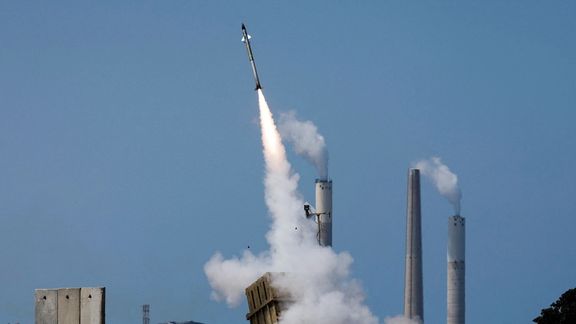
A former counter-terrorism advisor to two Israeli prime ministers triggered an intense debate about whether Iranian proxies will attack Israel in September or October.
There is, however, disagreement within Israel’s security and defense establishment over a planned Iran-backed attack against the Jewish state.
Yigal Carmon, the founder of the Middle East Media Research Institute (MEMRI) and one of Israel’s leading counter-terrorism experts, wrote an August 31st article titled “Signs Of Possible War In September-October,“ in which he argued a “confrontation could result from an uncontrolled deterioration on the ground or from the use of new and unusually deadly weapons by these movements [Hamas and Hezbollah].”
Carmon said, “neither Hamas nor Hezbollah are eager to start a comprehensive confrontation with Israel” but noted that growing acts of jingoism and saber-rattling by both Iranian regime-backed jihadi movements (including Palestinian Islamic Jihad) on Israel’s borders.
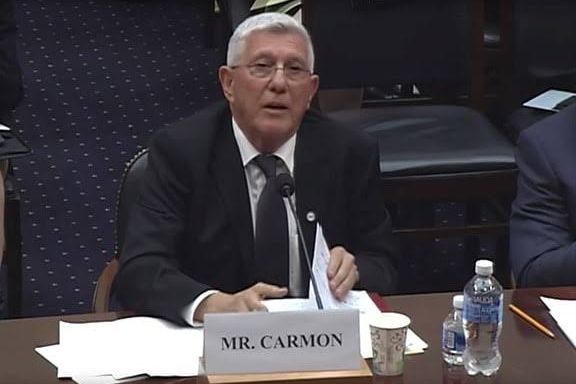
Hezbollah has set up tents in the Har Dov area within Israeli territory and was involved in “dismantling surveillance cameras along the border fence near Fatima Gate, and firing an anti-tank missile into Israel,” wrote Carmon.
Carmon, who is a fluent Arabic speaker, added “Hezbollah, which does not recognize the Blue Line as the international border between Lebanon and Israel, has recently made a new territorial claim, demanding that Israel give Lebanon sovereignty over the northern Rosh Hanikra railway tunnel, likewise in Israeli territory. At the same time, it also demands to curtail UNIFIL's freedom of action in South Lebanon.”
The US government and many European states have classified Iran’s strategic partner, Hezbollah, a foreign terrorist organization. Both the US and EU have designated Hamas and the PIJ terrorist entities.
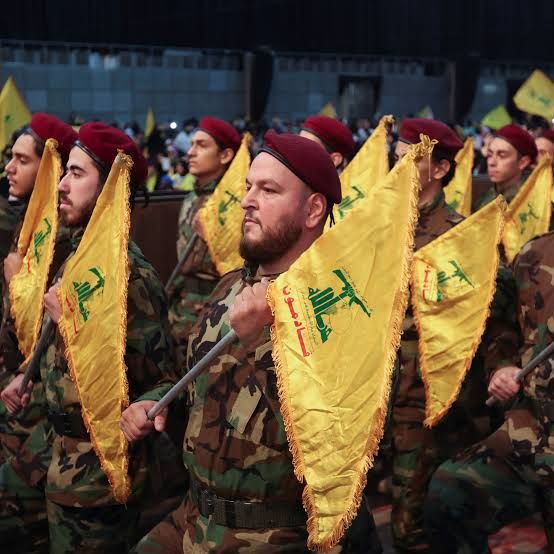
Carmon wrote, “There has also been an increase in efforts by Iran and Hezbollah to smuggle weapons into the West Bank, similar to the smuggling of weapons into Gaza. PIJ secretary-general Ziad Al-Nakhaleh said that, during his June 2023 meeting with Iranian Leader Ali Khamenei, the latter had ‘reiterated [the need to] develop the arming of the West Bank and the resistance there.’ Nakhaleh added: ‘We, as Palestinians and as resistance forces and movements, understand the importance of arming the West Bank, but this requires efforts by the Palestinians themselves, and also the assistance of our brothers in the Islamic Republic of Iran.’”
The spike in recent activity between Iran’s foreign minister Hossein Amir-Abdollahian and Tehran’s PIJ, Hamas and Lebanese allies in Beirut was also a subject of Carmon’s analysis.

Abdollahian stressed that in the Beirut meeting the statements of Khamenei about the need "to help the West Bank" and about Iran's "ongoing [commitment to] assisting the resistance with all its might." Amir-Abdollahian added, "the establishment of the joint Hamas-PIJ [war] room reflected a smart move on the part of the resistance.”
Carmon noted that Amir-Abdollahian also met with Hezbollah Secretary-General Nasrallah, who then met with Al-'Arouri and Al-Nakhaleh to "make a joint assessment of the situation in the West Bank, the escalation of the resistance activity and the latest Israeli threats."
Abdollahian and Iran’s allies underscored at the meeting "the steadfastness and steadiness of all the forces of the resistance axis in the struggle against the Zionist enemy," and cooperation between the "resistance movements" in Palestine and Lebanon.
When asked about Carmon’s analysis, Brigadier-General (res) Amir Avivi told Iran International, "While the specter of war unfortunately always looms along and beyond our borders, whether fueled by Iranian money and weapons or online incitement, at this time I do not share the assessment of an imminent war in September or October.
The terrorist organization Hezbollah in Lebanon has indeed been conducting provocations along the border, and the other Iranian proxies have made belligerent statements.”
Avivi, the founder and CEO of the Israel Defense and Security Forum (IDSF), added, “And yes, religious holidays are historically periods of inter-community tensions, but at this time I believe that neither Hezbollah nor Hamas have an appetite for a full-blown confrontation with Israel, because they understand how devastating it would be for them.”
Carmon had also warned in his article that “During the Jewish holidays in September and October, Jews are likely to visit the Al-Aqsa compound, as happens every year. Hamas and Hezbollah spokesmen have stressed that this could lead to a regional war.”
Avivi noted that “Both Hamas and Hezbollah are suffering from internal unrest and lack of legitimacy in their respective fiefdoms, and it would be wise of them to refrain from jeopardizing their own future. Contrary to media reports and wishful thinking amongst Iranian proxies, the IDF is fully fit for combat, alert and ready to respond to any aggression."

When presented with these arguments, Carmon told Iran International that “I said they [Hamas, Hezbollah and Palestinian Islamic Jihad] do not want it[war] but things can get out of control.”
Carmon raised the example of Nasrallah who said after the 2006 Second War in Lebanon about the kidnapping of Israeli soldiers that sparked the war: “We did not think, even one percent, that the capture would lead to a war at this time and of this magnitude. You ask me, if I had known on July 11 ... that the operation would lead to such a war, would I do it? I say no, absolutely not.”
A second factor that is part and parcel of Carmon’s “uncontrolled deterioration” framework during the lead up to the full-blown war in 2006 was the entry of an Israeli Merkava 2 tank into Lebanon that passed over a massive explosive device, destroying the tank and killing its four crew members.
Carmon said “People do things without knowing repercussions. This is what happens when people like Avivi listen only to themselves and not to the other side.” Carmon also warned about the shipments of advanced new weapons, including Kornet anti-tank missiles, to Iran-backed terrorist terrorists, that can be used by against Israelis.
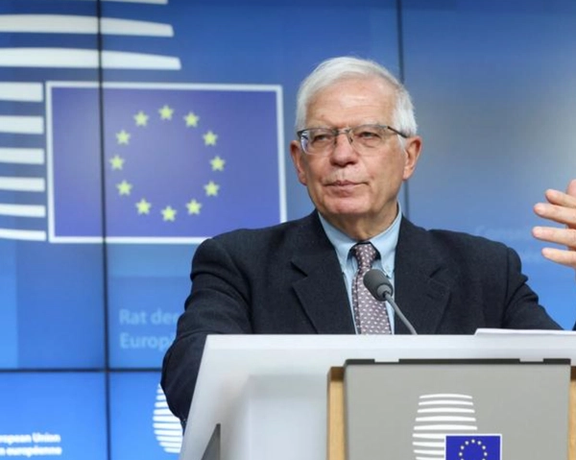
EU High Representative Josep Borrell confirmed On Tuesday that the Swedish citizen detained in Iran for 500 days works for the European Union.
He assured that everything was being done to obtain his release, although his office kept Iran’s hostage-taking under wraps all along, while holding talks with Iran on the nuclear issue.
Sweden on Monday said a Swedish citizen in his 30s was arbitrarily detained in Iran last year and called for his immediate release.
The Swedish government didn’t identify the man, but Borrell named him as Johan Floderus, a Swede who is working for the European Union.
Citing anonymous sources, the New York Times said Floderus was arrested on a private trip to Iran for possible use by Tehran as a bargaining chip in efforts to seek concessions from the West.
Iran’s Foreign Ministry spokesman, Nasser Kanaani, told the semi-official Fars news agency that he had no information on the case. However, Iran had announced in July 2022 that it had detained a Swedish citizen.
The Swedish Foreign Ministry said the man was detained in Iran in April last year but declined to give details.
Last month, the United States announced a “prisoner exchange” deal with Iran to free five US citizens. At the same time Washington allowed $9 billion of Iran’s frozen funds in South Korea and Iraq to be released.
The EU, Germany, France, The United Kingdom and the US have been trying to reach a deal with Iran to revive the JCPOA nuclear agreement abandoned by the Trump administration in 2018.
Reporting by AP

A court in Germany has levied accusations against an individual in connection with a fire that occurred in November 2022 at a school in the city of Bochum.
The defendant is alleged to have received directives from the Iranian government, with the primary target being a synagogue situated adjacent to the school.
The 36-year-old defendant, a dual Iranian-German citizen, is set to face trial on September 12th in the regional high court of Dusseldorf, as indicated by the official indictment. He has been charged with orchestrating an arson attack under the orders of Iranian government authorities, targeting a synagogue in the Ruhr region of western Germany.
Court documents reveal that the accused made unsuccessful attempts to recruit an acquaintance as an accomplice in executing the attack plan, with the acquaintance subsequently reporting the matter to law enforcement authorities.
The incident, which happened in mid-November, resulted in only minor damage. Since that time, the accused has remained in custody.
Prior to these developments, German media had referred to the accused as Babak J. and linked him to an earlier synagogue attack in the city of Essen, in November. Reports indicated that he had also been planning a third attack on a synagogue in Dortmund, where he was eventually apprehended.






